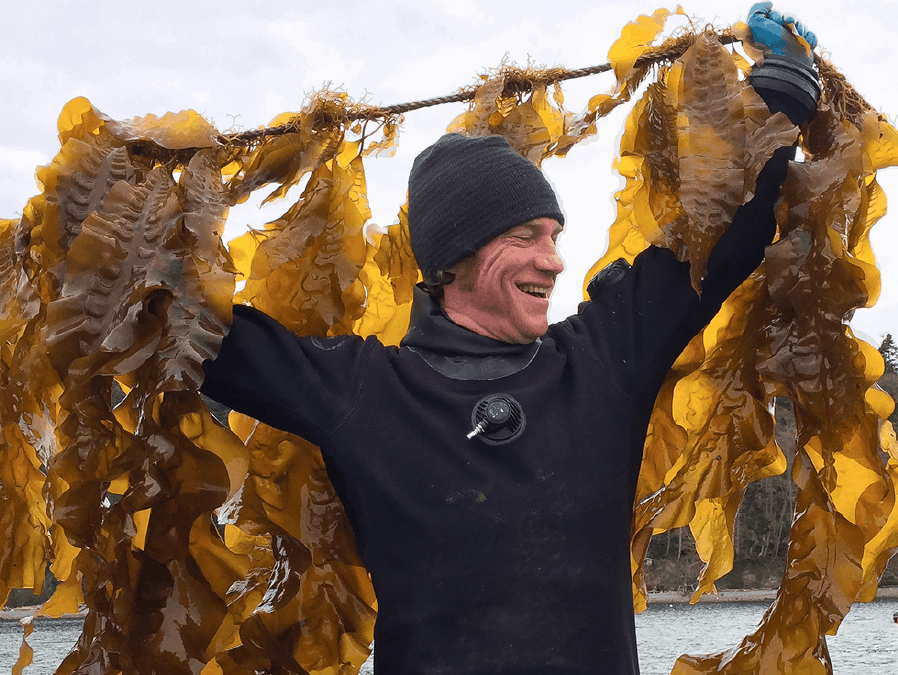Could kelp cultivation save our oceans?
written by Mackenzie Wilson
Could kelp be the key to battling climate change in our oceans? That’s what the research team at Puget Sound Restoration Fund (PSRF) is betting. In 2015, Paul Allen ponied up $1.5 million to investigate kelp cultivation as a potential strategy for mitigating ocean acidification. Dr. Joth Davis, senior scientist for PSRF, said 25 percent of carbon emissions released into the atmosphere are absorbed into the ocean. “The resulting change in seawater chemistry is known as ocean acidification because it increases the acidity of seawater over time and makes calcium carbonate less available to marine species,” Davis said.
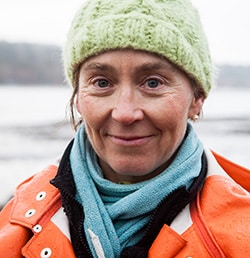
Betsy Peabody, founder of PSRF, culled a team of world-class researchers from the University of Washington, NOAA and the state Department of Natural Resources to study whether kelp could be an ally in combating carbon emissions. “Kelp is very similar to trees on land in the sense that both are drawing CO2 either out of the atmosphere in the case of trees or out of the seawater in the case of kelp,” Peabody said.
Leveraging decades of research supporting the environmental benefits of planting trees, PSRF planted kelp sporophytes in Puget Sound’s Hood Canal. The microscopic kelp plants were attached to kite string and wound onto growlines that were installed at the demonstration site in December 2016. Peabody described the process as flying blind. “You put the seeded line out there and hope that it takes, you hope that those little kelp sporophytes can run the gauntlet of whatever is going on in the marine system,” she said.
The team anxiously waited. They had followed proven methods used around the world for propagating and cultivating sugar kelp, but there was no guarantee because local species are different. Four months later, the microscopic kelp that entered the Puget Sound has grown, in some areas, to 2 meters tall. Eight-thousand feet of line has since been installed at the site within a 2.5-acre area. The scientific assessment team deployed mooring buoys with sensors to collect data on the kelp. “Our scientists will measure chemistry and biology at the site to see if kelp can measurably reduce CO2 and make a difference on a local scale,” Peabody said. Another team of NOAA divers, she said, is conducting underwater surveys to see if the kelp provides habitat for marine life.
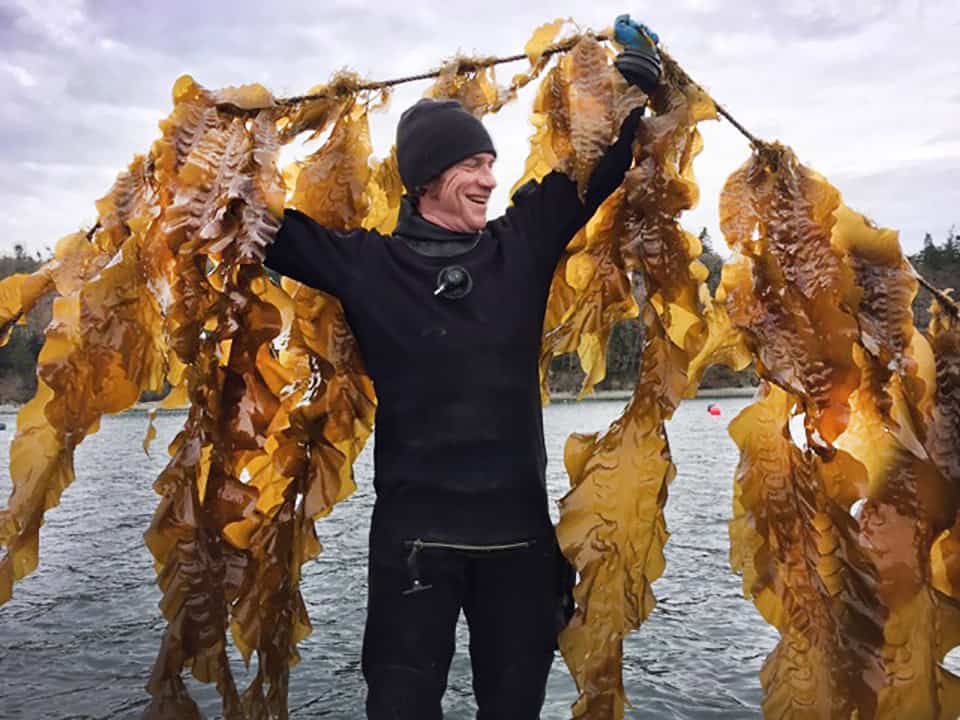
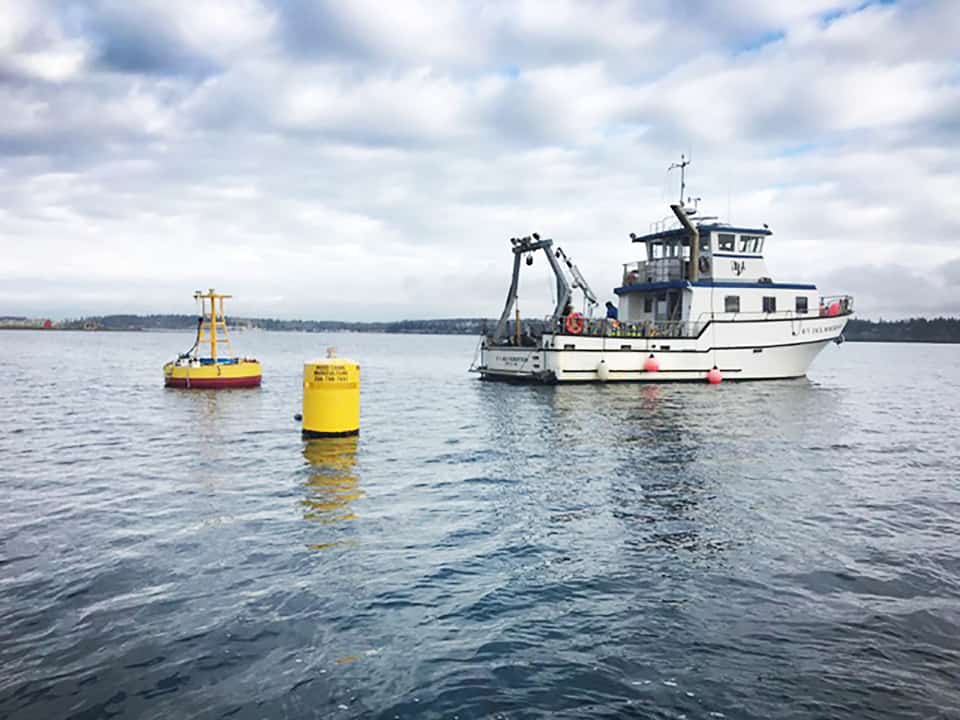
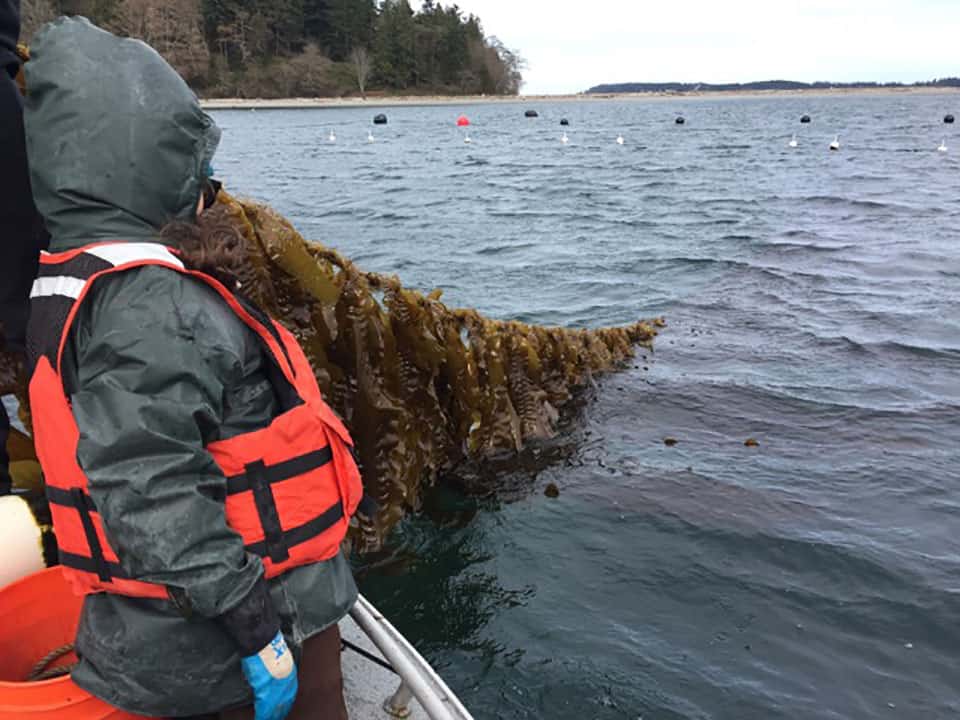

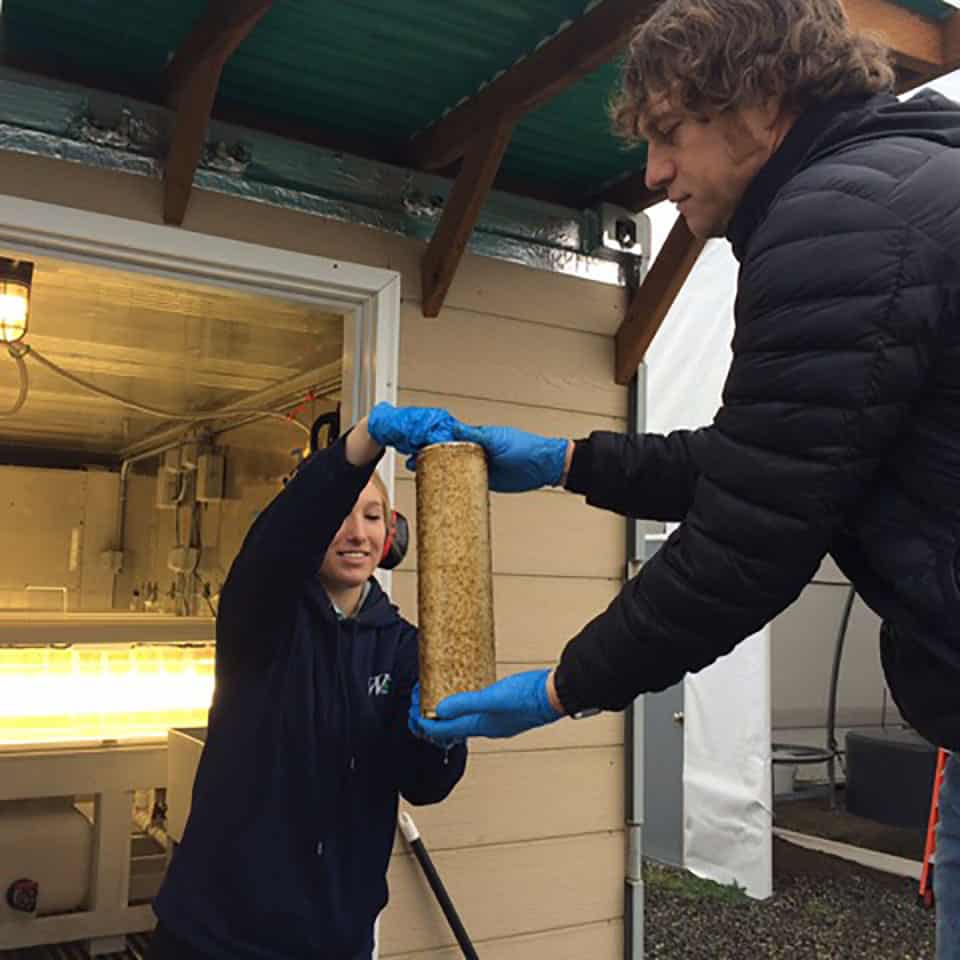
This experiment is part of a five-year project. The team will repeat the process in 2018 doing another full-scale year of cultivation and research. In 2019, crews will finalize analysis and reporting.
PSRF isn’t the only team growing and studying kelp. In Maine, kelp farmers are harvesting on an even bigger scale. “There has been some assessment of the water quality benefits there,” Peabody said. Early assessments done by the Island Institute in Maine have shown improvements in pH and carbon chemistry within kelp cultivation areas.
These early kelp farms offer insight into what the future of kelp cultivation could look like. Peabody said it grows very quickly and can be used in many ways after being harvested. It can be grown as a sea vegetable or used as an alternative to petroleum based fertilizers.
“It’s a pretty extraordinary resource,” Peabody noted. “This is a potential solution that could pay for itself with the sale of various products.”
Acknowledging the current political climate and its potential impact on funding, Peabody said she and her colleagues have to be more aggressive in finding ways to support their research and projects. “I think people are experiencing some anxieties and questions, but regardless of the political situation, we need to be driving forward with solutions that are going to help us hold onto water quality in the future,” she said.


